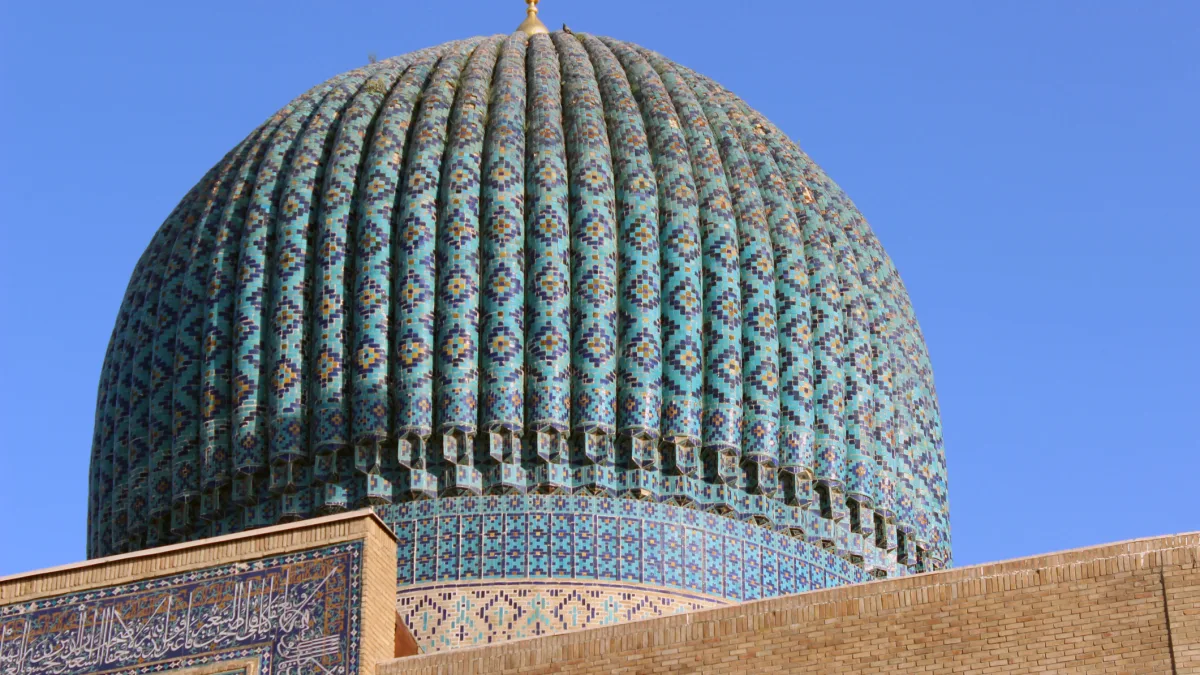Since the Georgian government froze its bid to join the EU and claimed victory in a disputed 2024 election, the country has spiralled into crisis. Protests continue, but the ruling Georgian Dream party is holding the line. For pro-European Georgians, the cost is mounting. We are watching our future slip away. Some, however, are already losing their present, locked behind bars on trumped-up political charges, facing years in prison. They need the international community’s support.
Since a fresh wave of demonstrations erupted in November, prosecutors have brought criminal charges against over 60 protesters. Most are young students, who police beat and dragged from the streets of Tbilisi and other cities. The list also includes journalists like Mzia Amaglobeli and many others who were simply doing their job and being attacked. A recent report by Georgian human rights watchdogs details systematic abuses by Georgian police forces and describes the ruling party’s strategy as one aimed to “reduce the remaining space for dissent and continue its rule indefinitely”.
This crackdown is not a series of isolated incidents. It’s a deliberate campaign to instil fear. What began with the targeting of street protesters has evolved into a broader offensive: one aimed at dismantling the opposition itself, leader by leader.
Words of encouragement are not enough
Since the end of May, two of the country’s most prominent opposition figures, Zurab Japaridze and Nika Melia, have been arrested. Both are leaders of the Coalition for Change, the opposition alliance which won more votes than any other opposition group in last October’s controversial general election.
Authorities arrested them after they refused to appear before a parliamentary investigative commission set up by Georgian Dream, a body the ruling party openly uses to criminalise the opposition by digging into alleged misdeeds from the previous government. Japaridze and Melia refused to answer questions, like many of their peers, and rejected paying bail. For them, to comply would be to legitimise the government’s authoritarian drift.
Street protests may have lost some of their spark and brightness since dominating global headlines just months ago, but that doesn’t mean the anti-Western push has stopped. Only now, some Georgians are paying a higher price for the fight: their freedom.
It’s time for the European Union and the United States to recognise a hard truth: Georgia’s path to democracy and a Euro-Atlantic future is a long and gruelling one, obstructed by a government with deep ties to oligarchy and an increasingly pro-Russian orientation. Diplomatic statements and symbolic sanctions can only go so far.
The people risking arrest, violence, and exile to keep Georgia anchored to the West deserve more than occasional words of encouragement.
Harsh statements, although infrequent, have their place, and occasional sanctions on government officials can boost protesters’ morale. But that doesn’t change the reality that dozens of Georgians are sacrificing their lives as we speak. With the opposition fragmented and the protest movement facing pressure, they need more than words. They need real support from international partners.
Political cover
European Commissioner for Enlargement Marta Kos reminded the European Parliament that granting a country EU candidate status “doesn’t automatically mean the way forward will happen”. That may be technically true, but it’s only part of the story. Status comes with responsibilities for the EU as well, especially toward the citizens who are actively fighting for the democratic values the Union claims to uphold.
By granting Georgia candidate status in 2023, despite repeated anti-democratic actions by the ruling party, the EU gave Georgian Dream political cover. That decision, however well-intentioned, now demands a course correction. European foreign policy must move beyond generic diplomatic language and symbolic sanctions. The EU must consider leveraging deeper economic ties, including trade frameworks, and overcome internal disagreements among member states to pressure the Georgian government into releasing political prisoners and restoring democratic norms.
To its credit, the United States has recently stepped up its engagement with initiatives like the MEGOBARI Act, which Congress has already passed and the Senate is now reviewing. This legislation calls for a comprehensive reshaping of US foreign policy toward Georgia, including increased pressure on the government to release political detainees. With Washington sharpening its focus on this strategic Caucasus crossroads, the EU should see this not as a reason to hold back, but as a clear call to deepen its own commitment.
Georgia is more than a neighbour on the EU’s periphery. It’s a crucial bridge between continents, a symbol of hope for democratic movements in the region, and a test case for the West’s credibility. The people standing up for its future are still fighting. They shouldn’t have to fight alone.
Photo: Dreamstime.







